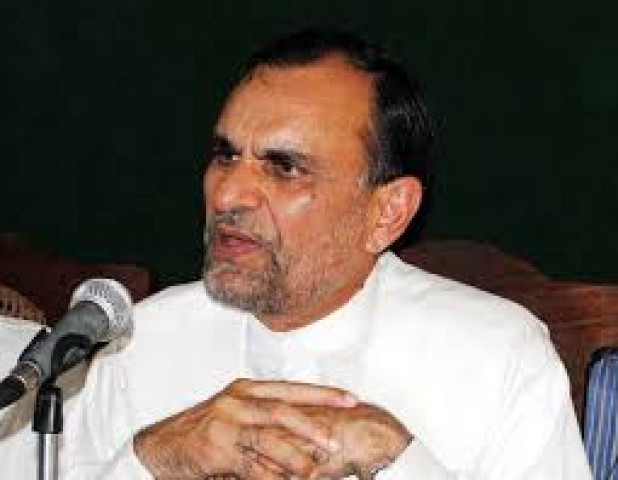Applicability of Article 62: SC seeks assistance of legal experts in Swati case
Remarks that the minister should have resigned after JIT report

Hearing of case is adjourned till December 24.
PHOTO: FILE
Renowned lawyers Khalid Javed Khan and Faisal Siddiqui will give legal assistance about the applicability of Article 62(1)(f) of the Constitution on Swati, who allegedly used his influence on police to victimise the family of one Niaz Muhammad whose cow allegedly grazed on his land. The article pertains to qualifications required for membership of parliament.
Swati should resign, can be charged under Article 62: SC
Chief Justice of Pakistan (CJP) Mian Saqib Nisar, while heading a three-judge bench, on Wednesday remarked that Swati’s trial could be conducted under Article 62(1)(f) of the Constitution, adding that the minister should have resigned voluntarily after submission of the JIT report.
When the counsel for Swati said there was no precedent for applicability of Article 62(1)(f) in such a scenario, the bench noted that now the court could establish a precedent through this case.
During the hearing, the bench took exception to the argument of Supreme Court Bar Association (SCBA) President Amanullah Kanrani, who also appeared to defend Swati.
Kanrani said Swati was his colleague in the Senate and therefore he was appearing on his behalf. He urged the CJP to ignore the aspect about applicability of Article 62(1)(f).
When Kanrani said Swati’s services could be used for the national cause, the CJP said, “We don’t want Azam Swati’s money for the dam funds nor for national interest.” The case was later adjourned till December 24.
Earlier, Swati submitted his written reply through his counsel Ali Zafar, which said he had no influence and had not misused any authority. “Swati acted within the law and any allegation that he did use his influence is incorrect and must be proved in accordance with law,” the reply said.
It said the JIT report was not conclusive evidence of the facts and the correctness of its contents had to be proved in a court. No findings may be recorded by this court in these suo motu proceedings under Article 184(3) of the Constitution lest it prejudice the case of anyone in the trial court, it said.
Swati records statement before JIT probing IGP Islamabad transfer
The reply said the minister regretted what had happened and wished that his son Usman Swati would settle the issue as soon as possible. He also tried to settle the issue through compromise between the accused persons and his employees. It said Azam Swati had not encroached on any land of the Capital Development Authority (CDA). He also stated that he could visit the United States on visa.
Last month, the JIT investigating the alleged role of Swati in the transfer of a former Islamabad police chief, submitted its report to the apex court. The JIT had been formed by the top court after it took suo motu notice of IGP Jan Muhammad’s transfer from the capital.
IGP Muhammad, a grade-20 officer of the Police Services of Pakistan (PSP), had been directed to report to the Establishment Division on October 27, apparently on the verbal order of Prime Minister Imran Khan on complaint of the minister.





1724319076-0/Untitled-design-(5)1724319076-0-208x130.webp)













COMMENTS
Comments are moderated and generally will be posted if they are on-topic and not abusive.
For more information, please see our Comments FAQ